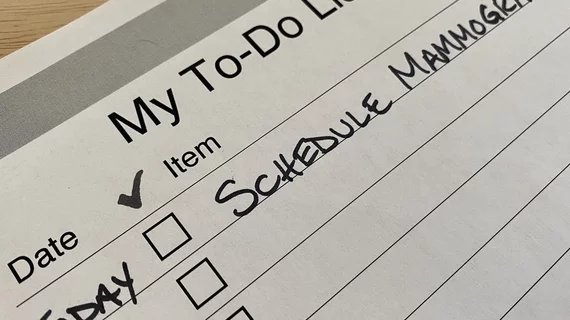Arizona bill would eliminate out-of-pocket costs for breast cancer screenings
A nonprofit breast cancer advocacy group is spreading word about an Arizona House of Representatives bill that would eliminate out-of-pocket costs for screenings.
In a statement, Susan G. Komen is urging local representatives to quickly pass House Bill 2411, which the organization said would eliminate financial barriers that hinder the early detection of breast cancer and give more patient’s access to screenings.
The legislation was introduced by Republican House member David Cook, and it would eliminate the cost of MRIs, ultrasounds, and mammograms. Further, the bill would also ensure follow-up screening for patients with abnormal findings are also covered.
In Arizona, 12% of patients require a second screening after an abnormal finding.
If the bill becomes law it would improve outcomes for patients and help to close a gap where underserved populations are diagnosed with later stages of the disease, likely because they tend to skip expensive follow-up screenings, the group said.
“Nobody should have to forego a test that helps to rule out breast cancer or confirm the need for a biopsy because of the cost, yet thousands of people in Arizona are doing it every year,” Molly Guthrie, vice president of policy and advocacy at Susan G. Komen said in the statement. “This bill will provide pivotal access to diagnostic and supplemental imaging so that individuals can get the care they need without having to endure undue financial burden. It is an important step toward equitable access to care, potentially saving lives by facilitating early detection and treatment.”
A Komen-issued study shows out-of-pocket expenses for breast cancer screening typically range from $234 to more than $1,000. The advocacy group said in 2024 alone, it’s expected that 6,830 Arizona residents will be diagnosed with breast cancer, leading to upwards of 950 deaths.

